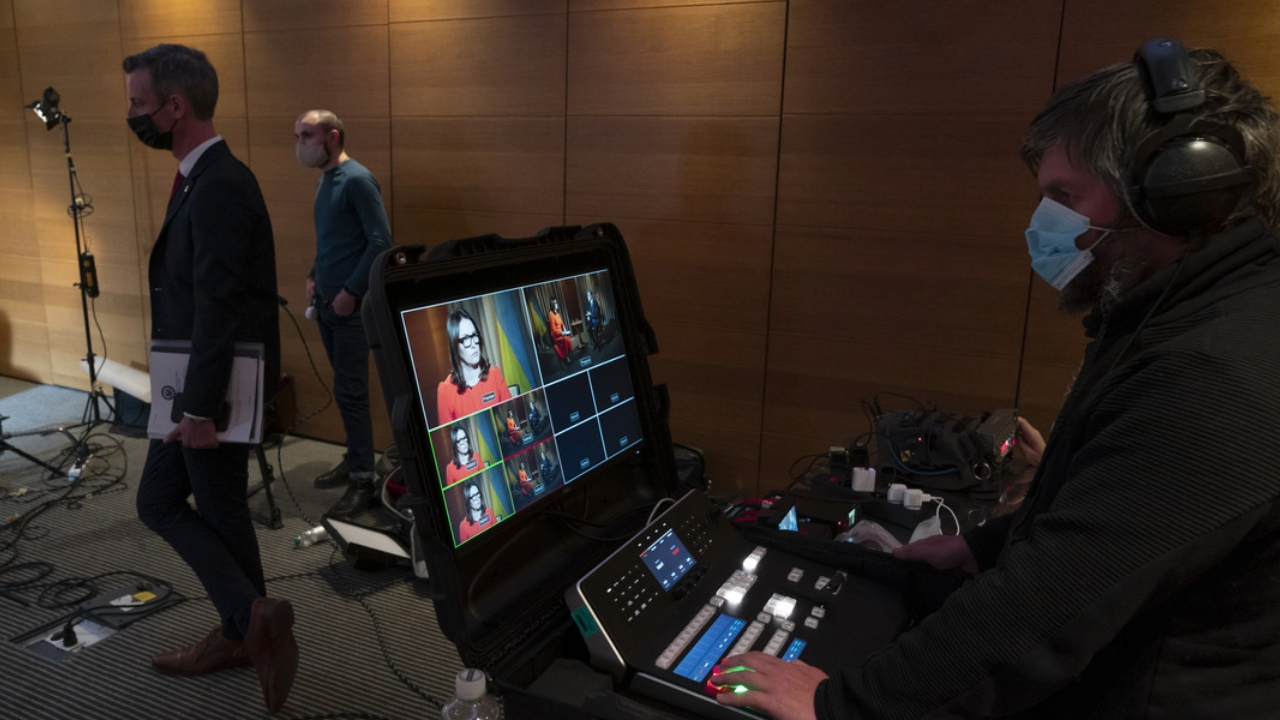
China and Russia Rejoice as the U.S. Cuts Its Global Media
Now is the time to rethink how America conducts information warfare and prioritize influence and psychological operations against authoritarian states.
When U.S. adversaries celebrate Washington’s decisions, it’s time to reassess them. After the Trump administration effectively dismantled the U.S. Agency for Global Media (USAGM) in mid-March, regime mouthpieces in China, Russia, and Iran popped the proverbial champagne bottles. There are components of USAGM that were dysfunctional and in urgent need of reform, but a wholesale dismantling sweeps away the good with the bad.
Ultimately, hobbling U.S. government-funded media organizations and shuttering efforts to counter foreign malign influence weaken U.S. national security. Washington needs to aim squarely at U.S. adversaries, restart these programs, and pair them with creative, covert strategies to push back on the axis of authoritarian aggressors.
USAGM provided funding to Voice of America (VOA), Radio Free Asia (RFA), Radio Free Europe/Radio Liberty (RFE/RL), and other broadcasters created to break through the censorship of authoritarian regimes and provide reliable news and information to citizens of those countries. Broadcasting in multiple languages, VOA and RFA, for example, regularly expose China’s human rights abuses, including the ongoing genocide against the Uyghur population in Xinjiang. VOA’s coverage provided truth and clarity on the Chinese Communist Party’s (CCP) suppression of protests in Hong Kong in 2019 and the CCP’s oppressive “Zero-Covid” strategy.
After dismantling USAGM, the administration placed 1,300 VOA employees on leave and terminated the grants to RFA and RFE/RL, forcing the broadcasters to furlough staff. These media outlets are some of the few instruments that America can employ to overtly combat adversarial propaganda machines. Their absence weakens America’s global reach.
VOA and its sister broadcasters, as well as U.S. foreign aid and democracy initiatives, have long been the subject of Moscow, Beijing, and Tehran’s ire, and the Trump administration’s cuts have made U.S. adversaries positively giddy. Russian government officials told The Moscow Times that the cuts have the Kremlin “elated.” Russian media personalities called the move “awesome.” Chinese Communist Party news outlet The Global Times applauded the decision, calling VOA a “lie factory.” The Ayatollah Khamenei’s advisors reportedly “gloated” over President Trump’s decision, which put a stop to all broadcasts into Iran.
While Washington has unilaterally disarmed, U.S. adversaries are expanding their malign influence campaigns. Russia has information warfare units within its military and intelligence apparatus. Iran’s Islamic Revolutionary Guard Corps established a “cognitive design” unit to fuel social and political unrest in the runup to the 2024 U.S. elections. China has sprawling transnational repression and malign influence networks.
In the face of this persistent attack, Washington has not only sheathed its sword but also put down its shield. After Congress failed to reauthorize the Global Engagement Center (GEC) last year, the State Department closed this office, which had effectively exposed and countered Russian influence in Africa and Latin America. The Justice Department disbanded the FBI’s Foreign Influence Task Force to identify and prosecute influence operations against Americans. Additionally, the Department of Homeland Security suspended efforts within the Cybersecurity and Infrastructure Security Agency (CISA) to secure U.S. elections against foreign interference.
Alone, each of these steps is damaging to U.S. national security, but collectively, they are catastrophic. The administration would do well to immediately reinstate the grant funding for VOA, RFA, and RFE/RL; reconstitute the GEC, and reinstate the FBI and CISA programs. In each case, it is appropriate for the administration to streamline funding, review priorities, and ensure the programs aim directly at U.S. adversaries.
This potential moment of rebuilding also provides an opening to reconsider America’s hesitancy to engage in influence operations of its own. Apart from above-board programming through USAGM, Washington has avoided leveraging the information space to undermine U.S. adversaries. Now is the time for U.S. policymakers to rethink how America conducts information warfare and develop strategies to prioritize influence and psychological operations against adversarial, authoritarian states.
That’s not to say that Washington should mimic the tactics of its adversaries. The malign influence campaigns by China, Russia, and Iran using fake online personas can often be clumsy or ineffective. Explosive press reports about past, misguided U.S. operations indicate that the Defense Department needs a clear strategy and guardrails. Failures are not a reason to leave the field, but rather to develop a better playbook.
This strategy should delineate what types of operations are acceptable, which agencies and commands are authorized to carry out which types of operations, and protocols to ensure that all operations have appropriate legal and policy oversight. Once guiderails are established, Washington can begin to contest adversarial influence worldwide while also degrading adversaries from within.
Information superiority is a key component of great power competition. The United States is in a battle for hearts and minds against China, Russia, and Iran. Abandoning the fight only serves to clear the arena for the malicious messaging of authoritarian regimes.
About the Authors:
Ari Ben Am is an adjunct fellow at the Center on Cyber and Technology Innovation (CCTI) at the Foundation for Defense of Democracies, focusing on emerging threats, influence and information operations, cyber operations, and hybrid warfare.
Johanna (Jo) Yang is CCTI’s research and editorial associate, working on issues related to nation-state cyber threats and U.S. cybersecurity policy.
Image: U.S. Department of State